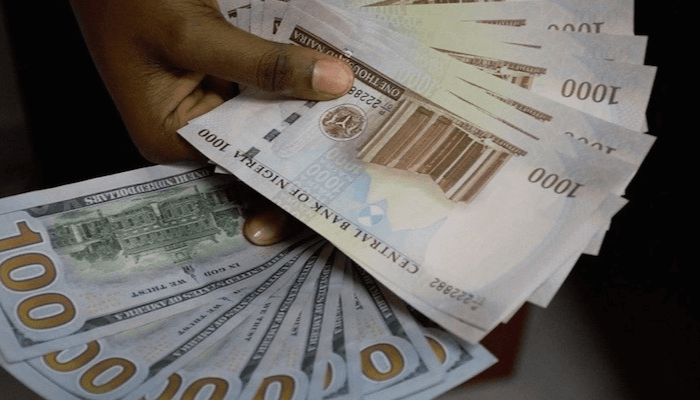The stability of Nigeria’s naira is under pressure due to large fiscal deficits, a growing debt burden, and persistently high inflation, which together threaten to erode the gains from ongoing foreign exchange reforms.
This concern was raised by Ugodre Obi-Chukwu, founder and CEO of Nairametrics, at the Finance Correspondents Association of Nigeria (FICAN)’s 2025 economic outlook event on Tuesday.
Obi-Chukwu pointed out that Nigeria’s fiscal deficits, rising debt, and inflation present significant risks to the exchange rate and could potentially undo the benefits of the current forex reforms. He emphasized that addressing the naira’s disparity with its actual value requires a consistent supply of foreign exchange. However, the ongoing strengthening of the dollar and increased competition for dollar inflows from other frontier markets pose additional hurdles.
While highlighting the potential risks, Obi-Chukwu advised businesses to prepare for a worst-case scenario where the naira could weaken to N2,200 to the dollar, while also staying ready for an optimistic scenario where it might stabilize at N1,700 to the dollar.

In his analysis, he acknowledged that Nigeria’s demand for foreign exchange has not fully recovered following the massive devaluation in recent years. He also noted that the country’s large fiscal deficit continues to drive the naira’s depreciation, with this trend expected to persist.
Obi-Chukwu also flagged high borrowing costs and debt repayment pressures as key risks. The country’s reliance on crude oil exports adds further vulnerability to the naira, as any drop in global oil prices could erase recent forex gains. Additionally, Nigeria’s heavy reliance on imports is putting more strain on the exchange rate.
However, Obi-Chukwu also pointed out some positive developments that could support the naira. He expressed optimism that potential interest rate cuts in the U.S. could increase capital inflows into Nigeria. Higher local interest rates offer opportunities to attract investments in fixed-income and equity securities, bolstering capital flows. He also highlighted the removal of Nigeria from the Financial Action Task Force (FATF) Grey List, which could enhance forex remittances and inflows.

The Central Bank of Nigeria’s introduction of the Enhanced Foreign Exchange Management System (EFEMS) could further strengthen forex transparency and price discovery. Additionally, ongoing oil sector reforms are expected to unlock more capital inflows, particularly in the upstream sector.
Obi-Chukwu noted that the last few months have shown progress in forex stability, with CBN interventions boosting investor confidence and helping maintain stability in the retail forex market.
On inflation, Obi-Chukwu revealed that Nigeria’s inflation rate stood at 34.80% as of December 2024. In this high-inflation environment, he advised businesses to prioritize spending on essential costs, cautioning that delaying such expenditures could be more costly later. He also encouraged local currency investments in government securities, which currently offer returns exceeding 25%.
Regarding Nigeria’s fiscal challenges, Obi-Chukwu noted that the country’s public debt had reached N135.8 trillion by the end of 2024, a 39% year-on-year increase. He predicted that the government would borrow approximately N12 trillion in 2025, despite a proposed budget indicating N8 trillion in borrowing. He emphasized that the government is likely to lean more on taxation to address the widening fiscal deficit, though the new tax bill may face resistance.
Obi-Chukwu concluded by acknowledging the challenges posed by Nigeria’s debt burden and fiscal deficits, but expressed hope that the government’s focus on capital expenditure, particularly in infrastructure projects, would help stabilize the exchange rate and contribute to broader economic stability.



